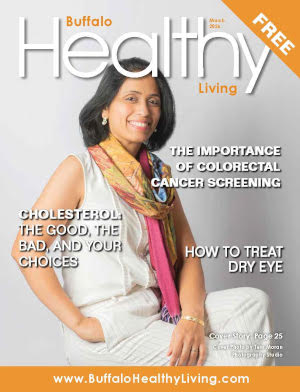5 Evolving Trends on End-of-Life Matters

Courtesy of Buszka Funeral Home
One of the most difficult conversations many people have in their lives involves the end of life. While often uncomfortable to think about or discuss with others, talking about and sharing end-of-life wishes should be a common occurrence. In fact, 91% of Americans believe talking about death and dying is healthy and normal, but 27% are uncomfortable doing so, and 31% say they’re uncomfortable thinking about their own mortality, according to a survey commissioned by the National Funeral Directors Association (NFDA).
The survey revealed a need for finding healthy ways to discuss death and end-of-life plans with friends and family, as well as new generational trends, highlighting Gen Z’s unique perspective about end-of-life matters. Consider these notable survey insights:
- Talking about death: While 9 out of 10 Americans surveyed believe talking about death and dying is healthy and normal, individuals ages 26 and younger (18%) are significantly more likely than older adults to believe it’s not healthy and normal – bucking the generation’s reputation as open and willing to discuss difficult and controversial topics. Those uncomfortable with talking about death cited not wanting to upset others (37%) and considering it too depressing (34%).
- Preferences for burial and cremation: Over the past several years, the U.S. cremation rate has increased steadily (60.5% in 2023) and the trend is forecasted to grow to 81.4% by 2045, according to NFDA’s 2023 Cremation and Burial Report. While cremation is still a top preference for people ages 60+ (66%), ages 40-59 (50%) and ages 28-43 (42%) – and half of all Americans overall – those under age 26 stand alone with traditional burial as their top preference (37%).
- Importance of funerals: Americans strongly agree funerals provide time to reflect on another’s life (59%) and are for the living to help them grieve and heal (57%). What’s more, 68% of individuals ages 26 and younger believe it’s important to commemorate the life of a loved one with a funeral or memorial service compared to 44% of people ages 60+.
- Comfort with the idea of death: According to the survey, 2 in 3 adults (69%) are at least somewhat comfortable thinking about their own eventual death and 7 in 10 (73%) are at least somewhat comfortable talking with others about death. More people age 60+ (33%) are comfortable thinking about their mortality than individuals ages 26 and younger (24%) and those ages 28 to 43 (28%).
- Communicating preferred funeral plans: Nearly two-thirds of adults (62%) have discussed their preferred funeral plans with family members. Similarly, 64% have had family members communicate their preferred plans to them. Those ages 60+ (75%) are most likely to have shared plans, while people under age 26 (59%) are most likely to have not communicated their funeral plans









